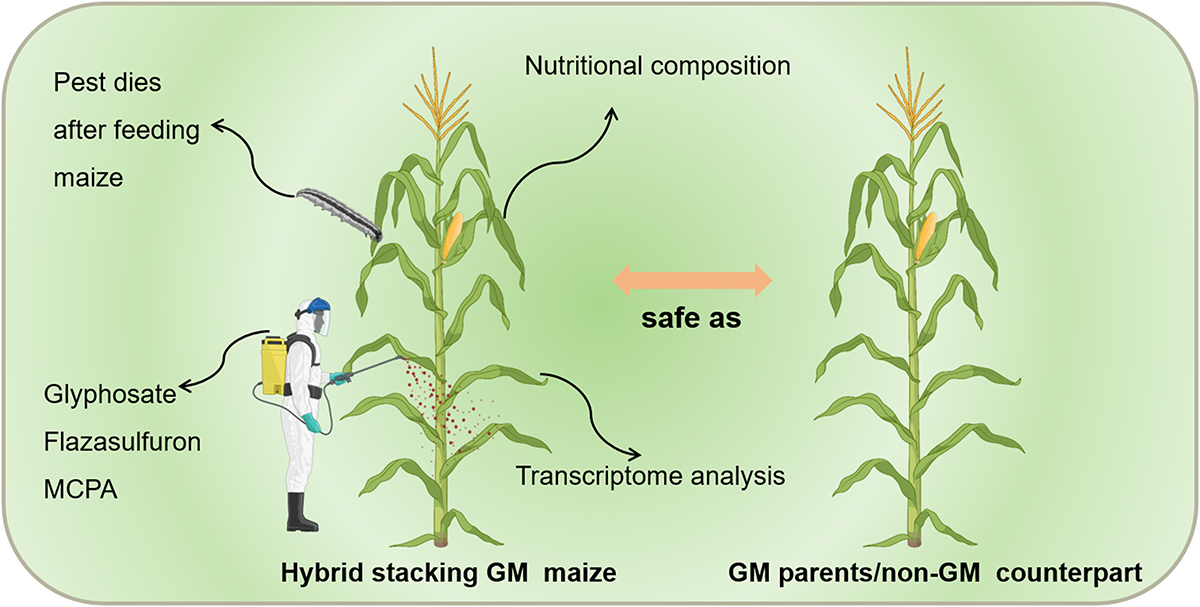
Study Reveals Hybrid Stacking in Maize Do Not Contribute Unintended Effects
March 5, 2025| |
Researchers from Zhejiang University in China reported in GM Crops and Food that hybrid stacking does not contribute to unintended effects in the transcriptome and nutritional composition of transgenic maize.
Nutritional evaluation of GM crops is one of the key elements in safety assessment before commercialization. Profiling methods such as transcriptome analysis are usually used to gain supplemental information regarding the unintended effects of GM crops. Thus, the researchers examined the nutritional and transcriptome composition of stacked transgenic maize ZDRF8×nCX-1, which expresses five genes.
Based on their molecular analysis, it was shown that the insertion sites of target genes remained intact during stack breeding, and the target genes were effectively expressed at both RNA and protein. Further analysis showed that the GM maize exhibits tolerance to glyphosate, flazasulfuron, and MCPA, and is resistant to corn borer attack. Transcriptome analysis further revealed that the GM maize ZDRF8×nCX-1 did not significantly alter transcriptome profiles compared to the transgenic maize events ZDRF8 and nCX-1. Nutritional composition analysis also revealed that the grain profile of ZDRF8×nCX-1 was substantially equivalent to that of the non-transgenic counterpart.
Read the open-access article in GM Crops and Food.
| |
You might also like:
- Maize (Zea mays L.) GM Events
- Study Concludes GM Maize DP-915635-4 As Safe As Conventional Counterpart
- Nigeria Approves GM Maize for Commercialization
Biotech Updates is a weekly newsletter of ISAAA, a not-for-profit organization. It is distributed for free to over 22,000 subscribers worldwide to inform them about the key developments in biosciences, especially in biotechnology. Your support will help us in our mission to feed the world with knowledge. You can help by donating as little as $10.
-
See more articles:
-
Plant
- Research Pinpoints Key Gene in Enhancing Drought Tolerance in Rice
- Study Reveals Hybrid Stacking in Maize Do Not Contribute Unintended Effects
- Ethiopia Approves GM Maize and Cotton for Commercial Production
- GM Crops to Help Combat Food Insecurity
- Safety Assessment Shows GA21 x T25 Maize as Safe as Conventional Counterpart
-
Food
- FSANZ Calls for Comment on Food Made from Insect-Protected GM Soybean COR23134
- Indonesia Requires Labeling for Food Products with at Least 5% Genetically Engineered Ingredients
-
Environment
- Amaranth Genomes Reveal Secrets of Herbicide Resistance
-
Read the latest: - Biotech Updates (January 28, 2026)
- Gene Editing Supplement (January 28, 2026)
- Gene Drive Supplement (February 22, 2023)
-
Subscribe to BU: - Share
- Tweet

